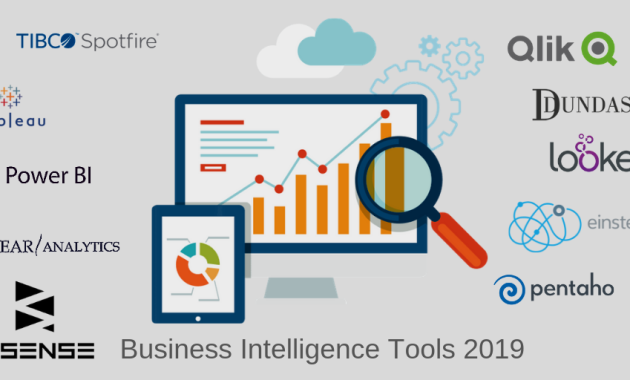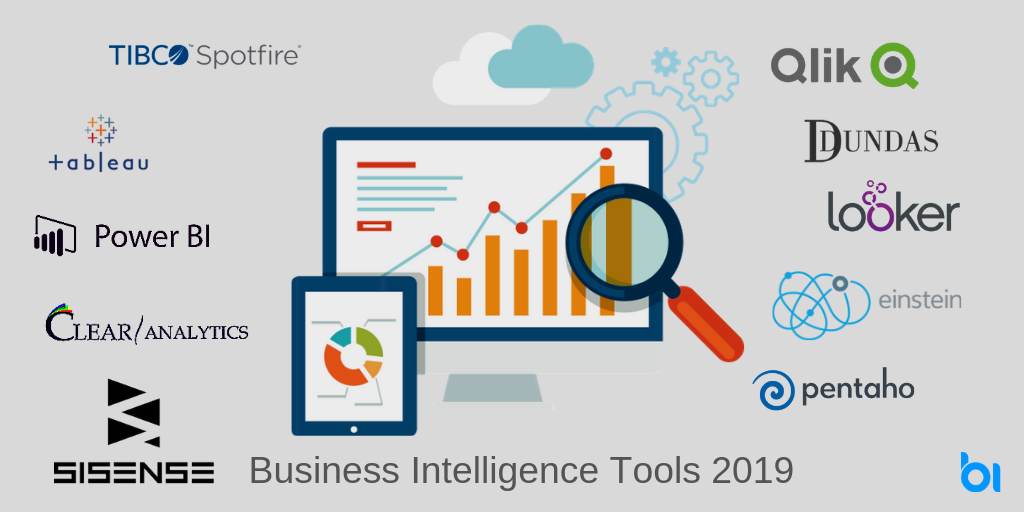
Top 8 Business Intelligence Tools That Actually Deliver: A Deep Dive
In today’s data-driven world, businesses are drowning in information. The key to success lies not just in collecting data, but in understanding it. This is where Business Intelligence (BI) tools come in. They transform raw data into actionable insights. This article explores the top 8 business intelligence tools that genuinely deliver value. We will delve into their strengths, weaknesses, and suitability for different business needs. The focus is on providing a comprehensive overview to help you make informed decisions. The best business intelligence tools allow businesses to gain a competitive edge. They empower data-driven decision-making.
Choosing the right BI tool is crucial. It can significantly impact your ability to analyze data. It can also impact your ability to make strategic decisions. The market is saturated with options. Therefore, navigating this landscape can be challenging. We aim to simplify this process. We will guide you through the leading contenders. These tools have proven track records. They are known for their performance and user-friendliness. The goal is to equip you with the knowledge to choose the best fit for your organization. The right business intelligence tools can be a game-changer. They can unlock hidden opportunities.
Understanding the Power of Business Intelligence
Business Intelligence (BI) is much more than just data visualization. It encompasses a range of processes. These processes transform data into knowledge. This knowledge then informs business decisions. Effective BI tools allow users to:
- Aggregate data from various sources.
- Analyze trends and patterns.
- Create insightful reports and dashboards.
- Identify areas for improvement.
- Predict future outcomes.
The benefits of using business intelligence tools are numerous. They include increased efficiency, improved decision-making, and a better understanding of customers. Ultimately, BI helps businesses to become more agile and responsive to market changes. The best tools will help you achieve your goals.
Top Business Intelligence Tools: A Detailed Review
Here are the top 8 business intelligence tools. They are designed to deliver tangible results. Each tool has unique strengths. We will explore them individually.
Tableau
Tableau is a leading data visualization tool. It is known for its intuitive interface and powerful capabilities. Tableau allows users to create interactive dashboards and reports. It can connect to a wide range of data sources. These data sources include cloud databases and spreadsheets. Its drag-and-drop functionality makes it easy to use. Tableau is suitable for businesses of all sizes. It offers a comprehensive suite of features for data analysis. The platform is known for its speed and flexibility. It’s a great choice for visually driven insights.
Microsoft Power BI
Microsoft Power BI is a robust business intelligence platform. It integrates seamlessly with other Microsoft products. Power BI offers a user-friendly interface. It offers extensive data modeling capabilities. Power BI is a cost-effective solution. It is ideal for organizations already invested in the Microsoft ecosystem. It supports a wide array of data connectors. Power BI is constantly evolving. It offers new features and integrations. It’s a powerful tool for comprehensive data analysis.
Qlik Sense
Qlik Sense is a self-service BI platform. It uses an associative data model. This model allows users to explore data in a more intuitive way. Qlik Sense excels at data discovery. It offers advanced analytics features. The platform is known for its flexibility and scalability. It is suitable for businesses with complex data needs. Qlik Sense’s associative engine helps users find hidden connections. It also helps them uncover valuable insights. It’s a great tool for exploring complex datasets.
Looker (Google Cloud)
Looker is a data analytics platform. It is now part of Google Cloud. Looker focuses on data modeling and governance. It offers a centralized data platform. Looker provides a single source of truth. This is for all business data. It is well-suited for organizations with large datasets. It is also good for those needing robust data governance. Looker is a great choice for building custom analytics applications. It is also good for embedding analytics into other applications.
Sisense
Sisense is a business intelligence platform. It is designed for complex data analysis. Sisense can handle large datasets with ease. It offers powerful data visualization capabilities. Sisense is known for its ease of use. It is also known for its ability to handle complex data. It is suitable for businesses that need advanced analytics. Sisense enables users to create interactive dashboards. It allows them to share insights easily. It’s a great tool for real-time data analysis.
ThoughtSpot
ThoughtSpot is a search-driven analytics platform. It allows users to ask questions in plain English. The platform then generates insights. ThoughtSpot is designed to be user-friendly. It democratizes data access across the organization. It’s especially useful for non-technical users. It enables them to explore data independently. It’s a great tool for ad-hoc analysis. It also helps to uncover hidden insights quickly. ThoughtSpot is a great choice for self-service analytics.
Domo
Domo is a cloud-based BI platform. It offers a unified view of all business data. Domo provides a wide range of integrations. It offers a user-friendly interface. Domo is suitable for businesses of all sizes. It excels at providing real-time dashboards. It also excels at collaboration features. Domo is a great choice for businesses seeking a comprehensive BI solution. It also works well for those prioritizing collaboration.
Zoho Analytics
Zoho Analytics is a self-service BI and analytics platform. It is designed for small to medium-sized businesses. It integrates seamlessly with other Zoho products. Zoho Analytics offers an affordable solution. It is easy to set up and use. It provides a wide array of data visualization options. Zoho Analytics is a great choice for businesses. They want to start with business intelligence. It is very user-friendly and cost-effective. It’s perfect for those seeking a simple solution.
Key Features to Look for in a Business Intelligence Tool
When choosing a business intelligence tool, consider these key features:
- Data Connectivity: The ability to connect to various data sources.
- Data Visualization: Powerful and intuitive visualization capabilities.
- Data Analysis: Advanced analytical features, such as forecasting.
- User Interface: Ease of use and intuitive design.
- Collaboration: Features for sharing and collaborating on insights.
- Scalability: The ability to handle growing data volumes.
- Security: Robust security features to protect sensitive data.
These features are essential for effective business intelligence. They will help you to unlock the full potential of your data. The right tools will also help you to make better decisions.
Choosing the Right Tool for Your Business
The best business intelligence tools depend on your specific needs. Consider these factors when making your decision:
- Business Size: Small businesses may benefit from user-friendly tools. Large enterprises may need more robust platforms.
- Data Volume: Choose a tool that can handle your data volume.
- Budget: Consider the cost of the tool, including licensing and implementation.
- Technical Expertise: Assess the technical skills of your team.
- Specific Needs: Identify your primary use cases for BI.
By carefully evaluating these factors, you can select the best business intelligence tool. This will help you to achieve your business goals. The right decision can transform your organization.
Implementing Business Intelligence Tools: Best Practices
Successful implementation of a business intelligence tool requires careful planning. These best practices will help you:
- Define Your Goals: Clearly define your business objectives.
- Choose the Right Tool: Select the tool that best fits your needs.
- Prepare Your Data: Clean and prepare your data for analysis.
- Train Your Team: Provide training to ensure users can use the tool.
- Monitor and Optimize: Continuously monitor and optimize your BI implementation.
Following these practices will maximize the value of your BI investment. They will also ensure a successful implementation. Proper implementation is key to realizing the benefits.
The Future of Business Intelligence
The future of business intelligence is promising. It will be driven by several key trends:
- Artificial Intelligence (AI): AI will automate data analysis.
- Machine Learning (ML): ML will improve predictive analytics.
- Cloud Computing: Cloud-based BI will become even more prevalent.
- Data Democratization: More employees will access data.
These trends will make BI more accessible and powerful. They will also drive innovation in the field. The future of business intelligence is exciting. It will empower businesses even more.
Conclusion: Making Informed Decisions with the Right Tools
Choosing the right business intelligence tools is crucial for success. This article has provided an overview of the top 8 tools. It has also covered key features, and best practices. By carefully considering your needs, you can make an informed decision. You can transform your data into actionable insights. This will empower your business to thrive. The right tools will deliver real value. They will also help you to stay ahead of the competition.
[See also: Choosing the Right BI Tool: A Step-by-Step Guide]
[See also: The Impact of Business Intelligence on Decision-Making]
[See also: Data Visualization Best Practices for Business Intelligence]

